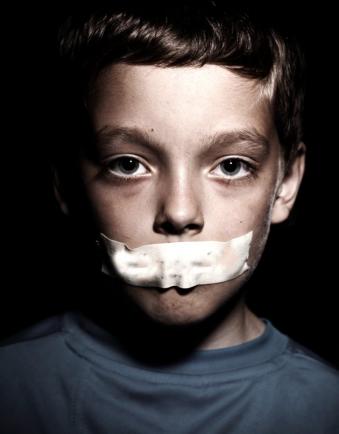
Until a few years ago many believed that anxiety only plagued adults. Many never thought children could also suffer these symptoms.
If you think that your war, divorce, unemployment, or grandparents' illness are not affecting your children, you're mistaken. Children listen and pay attention to more things than you can imagine. They understand that something bad is happening around them. Children perceive that the adults they love are upset and stressed. They know that their world is constantly changing and when nobody stops to explain what is happening, children can generate symptoms of anxiety.
Why should we worry about anxiety in children?
Studies show that childhood anxiety (influenced by negative family environments like divorce, illness in the home, etc) helped create high levels of anxiety later in life. The following symptoms can often be hard to detect, but are essential to be noticed by parents to help prevent a childhood (and future) filled with anxiety:
1. Difficulty sleeping
Notice changes in your child's sleeping patterns, espeically if your child starts talking in their sleep or suddenly doesn't want to go to bed. Extreme tiredness and/or reocurring nightmares can also be a symptom of anxiety in your child.
2. Constant worry
If your child is constantly worried about things that may happen, or has constant fears about going to school, their friends, or their family, this can be a symptom of anxiety. Pay attention and don't brush it off when your child tells you they are afraid.
3. Pain in various parts of the body
Especially headaches and stomach aches without other physical symptoms. A general feeling of "pins and needles" should also be noted.
4. Inability to relax
Along with constant worry, children with anxiety find it difficult to relax. If your child seems anxious in situations where they should feel comfortable, talk to a specialist.
5. Clingy behavior
Children are often very attached to their family members, but as they grow older, usually become more independent. If your child is being excessively clingy, this could be a symptom of anxiety.
6. Mood swings
Pay attention to constantly changing emotions. An anxious child often ranges from extreme joy to uncontrollable sobbing or anger. While mood swings are common in young children, don't just pass them off as being "normal", especially if you notice other symptoms of anxiety.
What you can do
1. Make the home a quiet place
Have a place where your child can feel calm and relaxed. Avoid screaming, loud music, excessive movement, lots of lights or people. Respect their privacy and help give your child a quiet home.
2. Be honest about things going on in the home
If you are going through a problem, explain it to your children in an age appropriate way rather than letting them live unawares. Remember, children can sense when you are stressed out and angry. Leaving those strong emotions unexplained can help encourage anxiety. Eliminate the need for excessive worry by working with your children to find a solution. Children should learn that problems are recognized, faced and conquered with effort and help from loved ones.
3. Talk to them and let them talk
Gaps in information that are filled with rumors only generate fear. Be honest and talk to your children, and let them talk to you in return. Talk about cheerful things and the latest news, so your child understands they can talk to you about anything.
4. Do not yell or punish him
Your child may be irrationally worried or not sleeping well because of some sort of problem they don't understand. Punishing them or yelling does not solve this issue. Approach your child with understanding and love instead.
5. Provide affection and attention
The bigger the problem, the more they need hugs from loving parents. Anxious children need more love, tender words and understanding to help calm their fears.
6. Food and exercise
Boredom can also be a source of stress and anxiety in very active children who can't relax and rest easily. Changing or improving their diet and increasing physical activity can help your child adapt to these intense emotional changes.
7. Talk to a specialist
Visiting a psychologist, a therapist, or even a spiritual guide can also be helpful if you notice symptoms of anxiety in your child. Use their expert advice to help your child navigate these symptoms.
Many pains in your child's future can be avoided if you pay attention to what is happening around them. Notice what your child tells you and what they are silent about to help them have a happy and healthy childhood.
This article has been adapted and translated from the original, "6 señales que tu hijo padece ansiedad y que la mayoría de los padres ignoran," which was published on Familias.com.
Like what you see? Sign up here for our weekly FamilyShare email.

